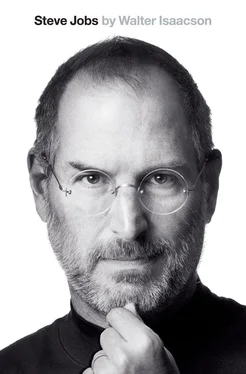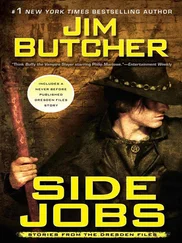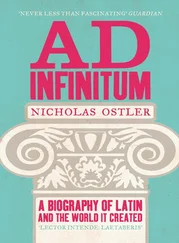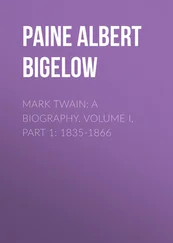The kids in the Explorers Club were encouraged to do projects, and Jobs decided to build a frequency counter, which measures the number of pulses per second in an electronic signal. He needed some parts that HP made, so he picked up the phone and called the CEO. “Back then, people didn’t have unlisted numbers. So I looked up Bill Hewlett in Palo Alto and called him at home. And he answered and chatted with me for twenty minutes. He got me the parts, but he also got me a job in the plant where they made frequency counters.” Jobs worked there the summer after his freshman year at Homestead High. “My dad would drive me in the morning and pick me up in the evening.”
His work mainly consisted of “just putting nuts and bolts on things” on an assembly line. There was some resentment among his fellow line workers toward the pushy kid who had talked his way in by calling the CEO. “I remember telling one of the supervisors, ‘I love this stuff, I love this stuff,’ and then I asked him what he liked to do best. And he said, ‘To fuck, to fuck.’” Jobs had an easier time ingratiating himself with the engineers who worked one floor above. “They served doughnuts and coffee every morning at ten. So I’d go upstairs and hang out with them.”
Jobs liked to work. He also had a newspaper route—his father would drive him when it was raining—and during his sophomore year spent weekends and the summer as a stock clerk at a cavernous electronics store, Haltek. It was to electronics what his father’s junkyards were to auto parts: a scavenger’s paradise sprawling over an entire city block with new, used, salvaged, and surplus components crammed onto warrens of shelves, dumped unsorted into bins, and piled in an outdoor yard. “Out in the back, near the bay, they had a fenced-in area with things like Polaris submarine interiors that had been ripped and sold for salvage,” he recalled. “All the controls and buttons were right there. The colors were military greens and grays, but they had these switches and bulb covers of amber and red. There were these big old lever switches that, when you flipped them, it was awesome, like you were blowing up Chicago.”
At the wooden counters up front, laden with thick catalogues in tattered binders, people would haggle for switches, resistors, capacitors, and sometimes the latest memory chips. His father used to do that for auto parts, and he succeeded because he knew the value of each better than the clerks. Jobs followed suit. He developed a knowledge of electronic parts that was honed by his love of negotiating and turning a profit. He would go to electronic flea markets, such as the San Jose swap meet, haggle for a used circuit board that contained some valuable chips or components, and then sell those to his manager at Haltek.
Jobs was able to get his first car, with his father’s help, when he was fifteen. It was a two-tone Nash Metropolitan that his father had fitted out with an MG engine. Jobs didn’t really like it, but he did not want to tell his father that, or miss out on the chance to have his own car. “In retrospect, a Nash Metropolitan might seem like the most wickedly cool car,” he later said. “But at the time it was the most uncool car in the world. Still, it was a car, so that was great.” Within a year he had saved up enough from his various jobs that he could trade up to a red Fiat 850 coupe with an Abarth engine. “My dad helped me buy and inspect it. The satisfaction of getting paid and saving up for something, that was very exciting.”
That same summer, between his sophomore and junior years at Homestead, Jobs began smoking marijuana. “I got stoned for the first time that summer. I was fifteen, and then began using pot regularly.” At one point his father found some dope in his son’s Fiat. “What’s this?” he asked. Jobs coolly replied, “That’s marijuana.” It was one of the few times in his life that he faced his father’s anger. “That was the only real fight I ever got in with my dad,” he said. But his father again bent to his will. “He wanted me to promise that I’d never use pot again, but I wouldn’t promise.” In fact by his senior year he was also dabbling in LSD and hash as well as exploring the mind-bending effects of sleep deprivation. “I was starting to get stoned a bit more. We would also drop acid occasionally, usually in fields or in cars.”
He also flowered intellectually during his last two years in high school and found himself at the intersection, as he had begun to see it, of those who were geekily immersed in electronics and those who were into literature and creative endeavors. “I started to listen to music a whole lot, and I started to read more outside of just science and technology—Shakespeare, Plato. I loved King Lear .” His other favorites included Moby-Dick and the poems of Dylan Thomas. I asked him why he related to King Lear and Captain Ahab, two of the most willful and driven characters in literature, but he didn’t respond to the connection I was making, so I let it drop. “When I was a senior I had this phenomenal AP English class. The teacher was this guy who looked like Ernest Hemingway. He took a bunch of us snowshoeing in Yosemite.”
One course that Jobs took would become part of Silicon Valley lore: the electronics class taught by John McCollum, a former Navy pilot who had a showman’s flair for exciting his students with such tricks as firing up a Tesla coil. His little stockroom, to which he would lend the key to pet students, was crammed with transistors and other components he had scored.
McCollum’s classroom was in a shed-like building on the edge of the campus, next to the parking lot. “This is where it was,” Jobs recalled as he peered in the window, “and here, next door, is where the auto shop class used to be.” The juxtaposition highlighted the shift from the interests of his father’s generation. “Mr. McCollum felt that electronics class was the new auto shop.”
McCollum believed in military discipline and respect for authority. Jobs didn’t. His aversion to authority was something he no longer tried to hide, and he affected an attitude that combined wiry and weird intensity with aloof rebelliousness. McCollum later said, “He was usually off in a corner doing something on his own and really didn’t want to have much of anything to do with either me or the rest of the class.” He never trusted Jobs with a key to the stockroom. One day Jobs needed a part that was not available, so he made a collect call to the manufacturer, Burroughs in Detroit, and said he was designing a new product and wanted to test out the part. It arrived by air freight a few days later. When McCollum asked how he had gotten it, Jobs described—with defiant pride—the collect call and the tale he had told. “I was furious,” McCollum said. “That was not the way I wanted my students to behave.” Jobs’s response was, “I don’t have the money for the phone call. They’ve got plenty of money.”
Jobs took McCollum’s class for only one year, rather than the three that it was offered. For one of his projects, he made a device with a photocell that would switch on a circuit when exposed to light, something any high school science student could have done. He was far more interested in playing with lasers, something he learned from his father. With a few friends, he created light shows for parties by bouncing lasers off mirrors that were attached to the speakers of his stereo system.
ODD COUPLE
The Two Steves

Jobs and Wozniak in the garage, 1976
Woz
Читать дальше













